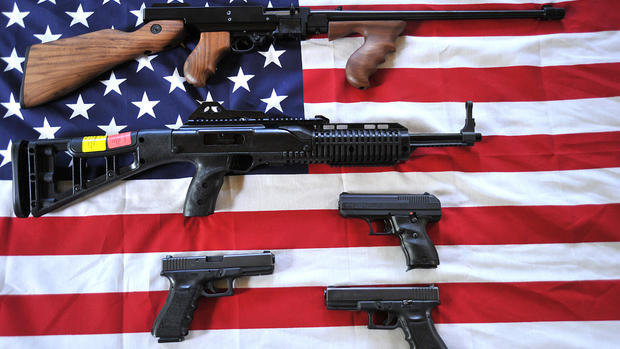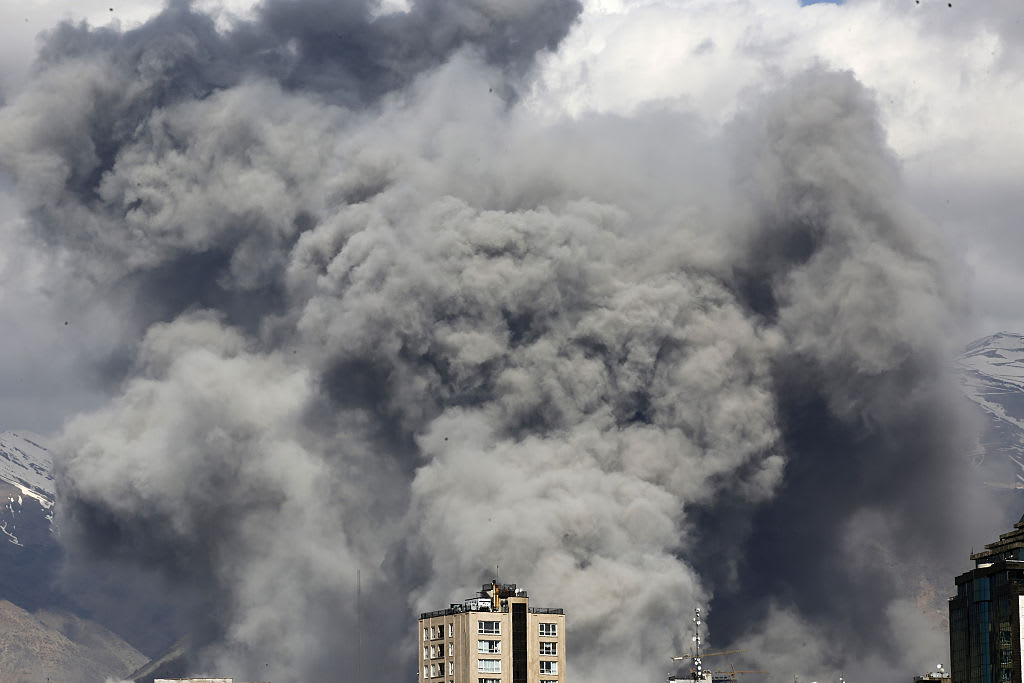Trump tells governors, "Don't worry about the NRA - they're on our side"
President Trump addressed a number of topics over the course of a lengthy discussion with the nation's governors at the White House Monday, over an hour of it before cameras. He talked about guns, North Korea, DACA, and gang violence, but mostly, the conversation was about school safety.
The president repeated several ideas he brought up last week, including a ban of bump stocks -- devices that cause semi-automatic rifles to fire like automatic weapons. He said he would "put them into the machine gun category" and ban them himself if Congress is unable to take action. "They're gone," he told the governors. He did not however, mention raising the minimum age for purchasing guns to 21.
The White House gathering was part of the National Governors Association Winter Meeting, and Sunday evening, the president had promised that addressing guns and school shooting would be on their agenda Monday, almost two weeks after the Parkland, Florida shooting.
"We'll turn our grief into action, we have to have action," the president urged. As for the NRA, Mr. Trump said, "Don't worry about the NRA, they're on our side." He added, "They think they're doing what's right, but sometimes we need to be tough."
The president announced last week that he directed Attorney General Jeff Sessions to draft regulations that would ban any devices that would turn legal, semi-automatic firearms into automatic weapons.
He also talked about arming "gun-adept" teachers and other school personnel, so that they could hunt down any would-be gunman their midst.
"The bullets are going to be going toward him also. I think that's great," the president said. These trained individuals, he suggested, could be given $1,000 bonuses.
Not all of the governors agreed with Mr. Trump's suggestion, though. Washington Governor Jay Inslee, a Democrat, challenged the president on his proposal to arm teachers, coaches and administrators. "I have listened to the people who would be affected by that. I have listened to the biology teachers, and they don't want to do that at any percentage. I have listened to the first grade teachers that don't want to be pistol-packing first grade teachers. I have listened to law enforcement who have said they don't want to have to train teachers as law enforcement agencies, which takes about six months."
Inslee went on to say that "educators should educate," and "they should not be foisted upon this responsibility of packing heat in first grade classes. Now I understand you have suggested this and we suggest things and sometimes then we listen to people about it and maybe they don't look so good a little later. So I'd just suggest we need a little less tweeting here and a little more listening. And let's just take that off the table and move forward." The president thanked him and then moved on to Texas Gov. Greg Abbott, a Republican, who has implemented a program that puts armed marshals in schools.
Florida Gov. Rick Scott said his state would invest $500 million in putting law enforcement at every public school in the state.
The president also said he's had discussions with leadership at the National Rifle Association, including CEO Wayne LaPierre, NRA's chief lobbyist Chris Cox and NRA's Deputy Executive Director and General Counsel David Lehman. Mr. Trump said he had lunch with them over the weekend and told them "we need to to do something."
At least three times, the president blamed sheriff's deputy Scot Peterson for failing to act during the Parkland shooting. He said the deputy "wasn't a brave guy under pressure" and "choked." His actions were a "disgrace," he said. Mr. Trump used a golf analogy to describe pressure situations, "How come some people always make the four footer and some people under pressure can't even take their club back?"
Mr. Trump also suggested he would have run into the building had he been there. "You don't know until you're tested. But I think - I really believe I'd run in there even if I didn't have a weapon," he said.
Sheriff Scott Israel told CNN on Sunday that investigators are looking into claims that three other deputies were on the scene but failed to enter the school when the chance to save lives still existed. To date, the investigation pointed to only one deputy being on campus while the killer was present, he said.
The president also broached the topic of mental health reform. He suggested that the country needs to think about reopening mental institutions in an effort to stop would-be shooters from committing similar mass shootings. "We have nothing between a prison and leaving him at his house," the president said. He said to the governors, "so you folks need to start thinking of that."
The White House has said it is currently in the "listening phase" on guns, but several proposals for reforms, including arming teachers in schools, have been floated as measures Mr. Trump might support.
Meanwhile, the president also confirmed that North Korea wants to pursue talks with the U.S. -- on the possibility of diplomatic talks, Mr. Trump said, "we'll see what happens." The White House said in a statement on Sunday that the administration is "committed to achieving the complete, verifiable, and irreversible denuclearization of the Korean Peninsula."
"The maximum pressure campaign must continue until North Korea denuclearizes. As President Trump has said, there is a brighter path available for North Korea if it chooses denuclearization. We will see if Pyongyang's message today, that it is willing to hold talks, represents the first steps along the path to denuclearization. In the meantime, the United States and the world must continue to make clear that North Korea's nuclear and missile programs are a dead end," the statement added.
Mr. Trump told the governors "we want to talk also but only under the right conditions."




